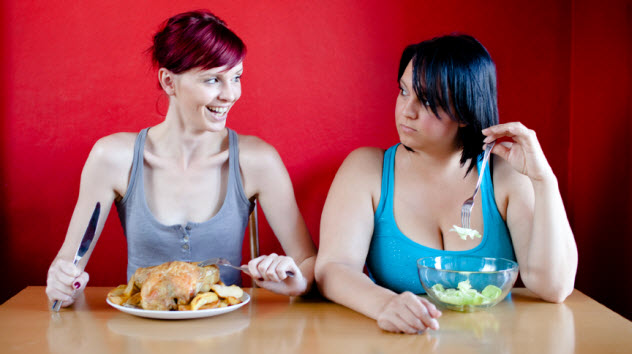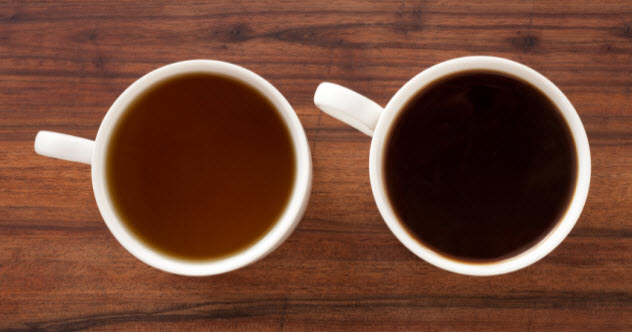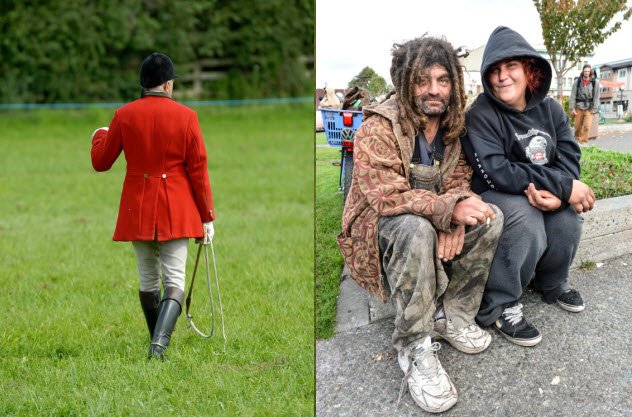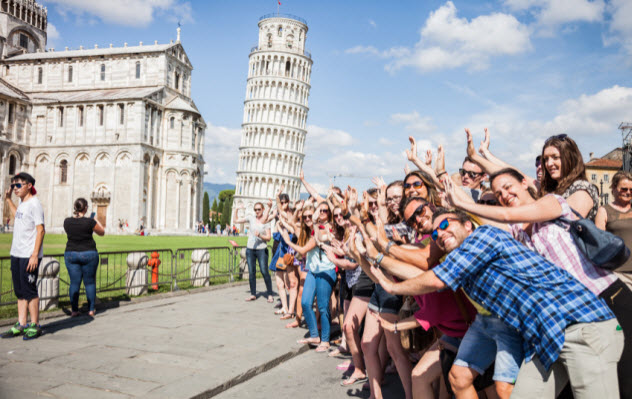 Mysteries
Mysteries  Mysteries
Mysteries  History
History 10 Surprising Stories About the Texas Rangers
 Humans
Humans 10 Philosophers Who Were Driven Mad by Their Own Theories
 Miscellaneous
Miscellaneous 10 Video-Game-Worthy Weapons and Armors from History
 Weird Stuff
Weird Stuff 10 Psychics Who Accurately Predicted Wartime Events
 The Arts
The Arts 10 Pieces of Art Inspired by a Broken Heart
 Health
Health 10 Science Fiction-Sounding New Medical Treatments
 History
History 10 Surprising Facts About the Father of Submarine Warfare
 Space
Space Ten Astonishing New Insights into Alien Worlds
 Weird Stuff
Weird Stuff 10 Bizarre Summer Solstice Rituals Still Practiced Today
 Mysteries
Mysteries Top 10 Haunting Facts About the Ghost Ship MV Alta
 History
History 10 Surprising Stories About the Texas Rangers
 Humans
Humans 10 Philosophers Who Were Driven Mad by Their Own Theories
Who's Behind Listverse?

Jamie Frater
Head Editor
Jamie founded Listverse due to an insatiable desire to share fascinating, obscure, and bizarre facts. He has been a guest speaker on numerous national radio and television stations and is a five time published author.
More About Us Miscellaneous
Miscellaneous 10 Video-Game-Worthy Weapons and Armors from History
 Weird Stuff
Weird Stuff 10 Psychics Who Accurately Predicted Wartime Events
 The Arts
The Arts 10 Pieces of Art Inspired by a Broken Heart
 Health
Health 10 Science Fiction-Sounding New Medical Treatments
 History
History 10 Surprising Facts About the Father of Submarine Warfare
 Space
Space Ten Astonishing New Insights into Alien Worlds
 Weird Stuff
Weird Stuff 10 Bizarre Summer Solstice Rituals Still Practiced Today
10 British And American Stereotypes That Science Says Are Bull
For two cultures that share a language, history, and broad outlook, Brits and Americans sure love to highlight their differences. We’ve all heard the stereotypes: Americans are fat loudmouths who don’t get sarcasm. Brits have awful teeth, hang-ups about class, and severe drinking problems. How amusingly different we all are.
Only science says otherwise. Far from being defined by our differences, careful examination shows that Brits and Americans are far more similar than many of us realize.
10Americans Are Fat, Brits Are Slim

If there’s one stereotype of the US that will never die, it’s that all Americans are hideously overweight. Ask most Brits to describe a typical American tourist, and the first word you’ll likely hear is “fat.”
There’s a good reason for this. Government data shows that a shocking number of Americans are considered obese, with even more falling into the “overweight” category. But Brits are kidding themselves if they think they’re any different. A 2014 study showed that Britain is one of the fattest nations in the Western world.
Compared to its immediate neighbors, Britain is overwhelmingly overweight. Only Iceland and Malta consistently have fatter inhabitants, although UK men are at least svelter than their Greek and Cypriot counterparts.
While 66 percent of Americans are overweight or obese, it’s not that much lower across the pond. The UK comes in at 62 percent, placing it on a par with Australia. By contrast, Germany has a population that’s 57 percent overweight or obese, while over half of all French people are underweight to average size.
9Americans Have Great Teeth, Brits Have The Worst
Now let’s go from a negative stereotype of Americans to a negative one of the British. The idea that Brits have terrifyingly bad teeth powers roughly 100 percent of all comic depictions of UK culture. As shown in the video above, even The Simpsons went gallivanting down this well-trodden path.
We’ve mentioned before that British teeth are actually far better than those of their European neighbors. But this isn’t just some Old World thing where everyone’s teeth are dreadful. By many measures, British oral hygiene is ahead of that in America.
According to OECD figures, US children have an average of 1.3 decayed or missing teeth by the age of 12. For their British counterparts, the number is only 0.7. That’s the best oral hygiene out of every country surveyed, tying for the top spot with Denmark and Luxembourg.
That’s not to say the stereotype doesn’t have some basis in fact. In 1963, the average British child was missing a shocking 5.6 teeth, and in 1978, over one-third of all adults living in Wales had no natural teeth left. Fast-forward to the present, though, and it looks like it’s time to retire this stereotype. Brits have one of the highest rates of attending dental surgeries in the whole of Europe.
8Brits Are Tea Drinkers, Americans Are Obsessed With Coffee

Nothing highlights British and American differences quite like their respective national drinks. Go-getting Americans swill more coffee than any other nation on Earth while refined Brits relax over an afternoon tea.
At least, that used to be the case. But new research shows that many Americans are falling out of love with the fabled bean. In its place, they’re turning to drinking copious amounts of tea.
In 2014, the US imported more tons of tea than Britain for the first time in modern history. (Yes, the US has a lot more people, but the point is they’re catching up.) Among young people, tea is fast becoming the drink of choice. A recent YouGov survey found that tea and coffee are equally popular among 18- to 29-year-olds, with 42 percent choosing coffee as their drink of choice and 42 percent preferring tea. By contrast, 70 percent of those over 65 would rather have a cup of joe.
Admittedly, the US still has a long way to go to catch up with the UK. In terms of per capita consumption, only Turkey and Ireland drink more tea than the British. But things are changing, especially among the young. Another YouGov survey found that only 39 percent of 18- to 24-year-old Brits put tea as their drink of choice. That’s lower than among similarly aged Americans.
7Brits Are Violent, Americans Less So

The old British stereotype was of a guy in a bowler hat cutting you with his devastating wit while sipping tea. Today, it’s more likely to be a drunken soccer hooligan punching you in the face while trying not to vomit. Although America has more murders, many perceive British society as a whole to be more violent—anywhere between five to eight times more violent, if you want to put a figure on it.
The government’s own numbers seem to back this up. In 2010, the FBI reported 403 violent crimes per 100,000 people in America. By contrast, the UK Home Office reported a jaw-dropping 1,797 offenses per 100,000 people in the same time span. That sure seems like a lot until you realize that the two countries consider wildly different things to be “violent crime.” This makes the statistics impossible to compare.
The FBI only counts four things as violent crime: murder and nonnegligent manslaughter, forcible rape, robbery, and aggravated assault. The Home Office counts all that plus simple assault without injury, all sexual offenses (of which forcible rape only makes up 25 percent), harassment, and “causing public fear, alarm or distress.” In 2010, over half of all recorded crimes against a person in the UK didn’t result in any injury. The FBI wouldn’t even think about adding such cases to its tally.
When people have tried to judge UK crimes by FBI criteria, they’ve generally concluded that Britain is not much more violent than the US and possibly slightly less so. Although it’s impossible to say for sure, the UK assault rate could be anywhere between three times as high as the US rate to less than half. Meanwhile, the US murder rate is definitely 300 percent higher than the British one, and the rape rate may be as much as 8 percent higher.
6Americans Don’t Understand Sarcasm
The British are masters at sarcasm and irony. Your average conversation between Brits probably contains more biting irony than seven seasons of Curb Your Enthusiasm. There’s nothing the British love more than to flaunt their masterful grasp of ironic humor in the face of dim bulb Yanks who think they’re being genuine.
The reality, of course, is a little more nuanced. The vast majority of Americans perfectly understand and appreciate both irony and sarcasm. They’re just a bit more discerning about when to use it.
According to the Smithsonian Magazine, sarcasm permeates every aspect of modern American culture. You can see it in movies, on TV, in interviews, and just in general conversation. In fact, it’s such an essential skill in modern America that it can be difficult to function socially if you don’t understand it. The difference is that Americans don’t use sarcasm quite as relentlessly or drily as the British.
So where does this myth come from? Part of it may have to do with how sarcasm and irony are viewed in different regions of the US. While 56 percent of Northerners and a majority of New Yorkers find sarcasm funny and a desirable quality, only 35 percent of Southerners do. It’s not that they don’t get it. It’s just that they may not find it particularly appropriate.
5Americans Are Highly Militaristic

After extended military action in Afghanistan, Iraq, Libya, and Syria, most of Europe views America as the gung ho conqueror of the world. Even Brits, whose own government followed the US into Iraq, frequently use “American” as a synonym for “warmonger.”
In terms of attitudes, though, the two countries share far more similarities than differences. While Brits might be less likely to loudly declare their patriotism in a messy conflict like Iraq, their views on the use of force are nearly identical to those of the Americans.
In a global attitudes survey, Pew Research International set out to examine the value gap between America and Europe. While they found that the US and UK disagreed on issues like the role of the state and the importance of religion, their views on military intervention were closely matched. Around 75 percent of Americans agreed that “it is sometimes necessary to use military force to maintain order in the world,” compared with 70 percent of Brits.
However, only 62 percent of French and Spaniards and 50 percent of Germans agreed with that statement. This isn’t to say that this value match always translates to policy—the UK government’s plans to join Obama in bombing Assad’s forces were voted down in 2013—but in terms of mind-set, there isn’t much difference.
4The UK Is Crippled By Class, America Is A Classless Society

If Americans know anything about British culture, it’s that class is everything. Compared to the American dream, Britain is a stultifying fossil where the circumstances of your birth can dictate whether you’re ruling Downton Abbey or quietly scrubbing its kitchens.
Class certainly is a huge problem in the UK. Social mobility is possibly the worst in the Western world, with a staggering 50 percent of a father’s financial advantages and disadvantages transmitted to his son (compared to a mere 15 percent in Denmark). But America is nearly as bad. Those born into the poorest 20 percent of American households have only an 8 percent chance of ever making it into the richest fifth. On the other hand, those born at the top have a 1 in 3 chance of staying there no matter what they do.
Despite what many Americans believe, class in the US is hideously entrenched. You’re more likely to live the American dream by moving to Canada, Germany, France, or Australia than you are by staying put. The class system might not be quite so historically loaded as it is in Britain, but in the early 21st century, it is nearly as rigid for all practical purposes.
3US Politics Is Crazy, UK Politics Is Sensible
Compared to the brash statements, showboating, and partisanship that make up US politics, the British variety can seem like a safe haven. During the last general election, Jon Stewart complimented the nonpartisan style of UK politics. Ask most Brits, and they’d probably tell you that US politics is the preserve of religious nutters.
We’re not going to deny that US politics is brasher than its transatlantic cousin. But Brits are fooling themselves if they think they’re completely free from Trump-like characters or crazy Christian fundamentalists. They even have the same partisan media and race-baiting comments you get during the worst of the US election season.
In January 2014, a councillor for the libertarian UK Independence Party claimed that floods across the UK were caused by God’s displeasure at David Cameron for legalizing gay marriage. Members of the party have publicly said that they have a “problem with Negroes’ faces,” and one even told a prominent black comedian to emigrate to a “black country.” They even have their own version of Donald Trump, a guy called Nigel Farage who blames heavy traffic on immigration and once claimed that foreigners were bringing HIV to England.
The media is also wildly partisan. During the 2015 election in the UK, Obama’s former campaign adviser claimed that UK newspapers are more partisan than either Fox or MSNBC. The Telegraph faked a list of businesses it claimed were anti-Labour and then published it without informing those it featured (many of whom asked to be removed). The Sun ran so many attack columns that 95 percent of its coverage was deemed to be anti-Labour. The Daily Mail did a hit job on the dead Holocaust refugee father of the Labour leader at that time, claiming that the father “hated Britain.”
This type of politics may not bubble to the surface quite as much in the UK as it does in the US, but to claim that British politics is sober and sensible is wildly far of the mark.
2British Left-Wingers Are More Progressive Than Their American Counterparts
On the liberal side of American politics, people frequently complain that there’s no one truly left-wing to vote for and the Democrats are just Republican lite. Many left-leaning US voters would rather be somewhere like Britain, where the opposition is properly liberal.
Following the election of far-left Jeremy Corbyn as head of the Labour party in September 2015, that analysis is probably true. But for decades before that, left-wing Labour wasn’t notable for being especially progressive. During the Bush years, they were to the right of the Democrats on many significant issues.
In 2008, The Economist commissioned a series of polls to figure out where British voters stood in relation to their US counterparts. While even conservative Brits were more left-wing where values were concerned, Labour supporters had some fairly hawkish views. Regarding military intervention, they were far more supportive of action than Democrats were. They were also noticeably to the right of Democratic voters on climate change.
Closer to the present, the Labour party has pursued some fairly right-wing policies. In May 2015, Ed Miliband led them into the election promising extremely tough controls on immigration. Far from being unabashed progressives, British lefties are generally as focused on the center as their American counterparts.
1Both Brits And Americans Make Awful Tourists

Generally, we tend to hold negative stereotypes against other countries. Where tourism is concerned, this strangely isn’t the case. Both Americans and Brits proudly consider themselves to be the world’s worst tourists.
It’s easy to see why. For Americans, the image of a loud, obnoxious guy in a baseball cap steadfastly refusing to understand or respect local cultures is enough to make most die of shame. For Brits, the thought of drunken idiots puking on the shores of Spain after cursing at the waiter in English is similarly depressing. But which is worse? We’ve got some good news. According to the rest of the world, we’re equally as bad.
Polls on the world’s worst tourists generally end with either Americans or the British topping the list. Although the French and Germans occasionally get a spot on the list, no other nations are so overly represented. Although the title may pass from one side of the Atlantic to the other—depending on the poll—it’s generally agreed that we’re both the worst. Uh . . . yay, we guess?








